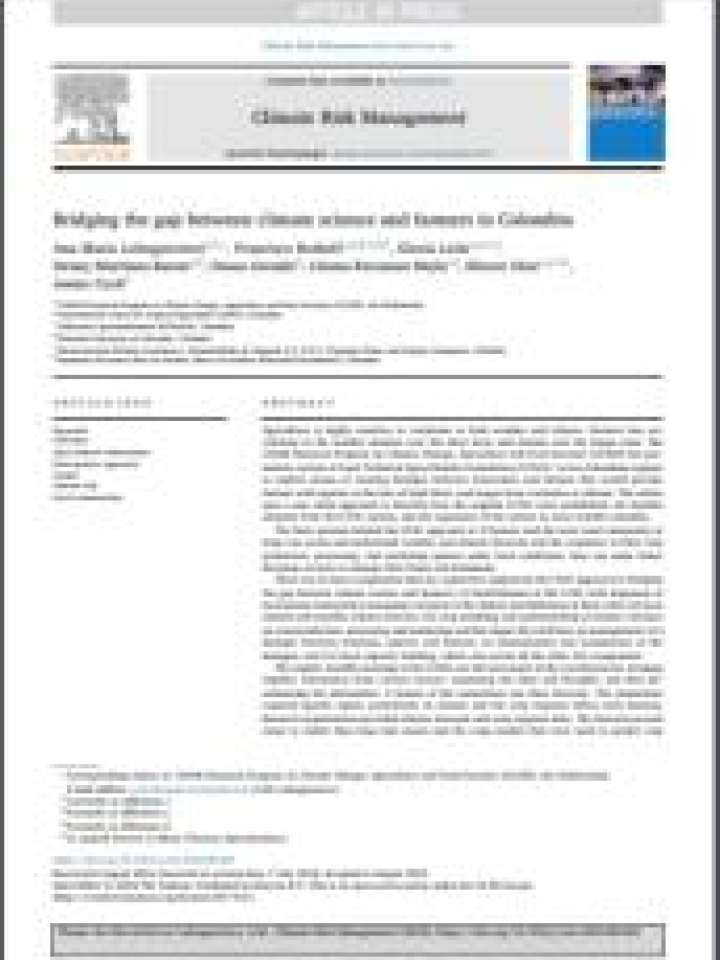Report: Bridging the gap between climate science and farmers in Colombia
This article uses a case study approach to describe how the original LTACs were established, the benefits obtained from the LTAC system, and the expansion of the system to areas outside Colombia. Agriculture is highly sensitive to variations in both weather and climate. Farmers face uncertainty in the weather patterns over the short term, and climate over the longer term. The CGIAR Research Program on Climate Change, Agriculture and Food Security (CCAFS) has promoted a system of Local Technical Agro-Climatic Committees (LTACs) in two Colombian regions to explore means of creating dialogue between researchers and farmers that would provide farmers with options in the face of both short- and longer-term variations in climate.
There are six basic components that are required to implement the LTAC approach to bridging the gap between climate science and farmers: (i) Establishment of the LTAC with alignment of local parties interested in managing variation in the climate and definition of their roles; (ii) local climate and monthly climate forecast; (iii) crop modeling and understanding of climate variation on crop production, processing and marketing and the impact this will have on management; (iv) dialogue between scientists, experts, and farmers; (v) dissemination and socialization of the dialogue; and (vi) local capacity building, which cuts across all the other five components.
Explore further
